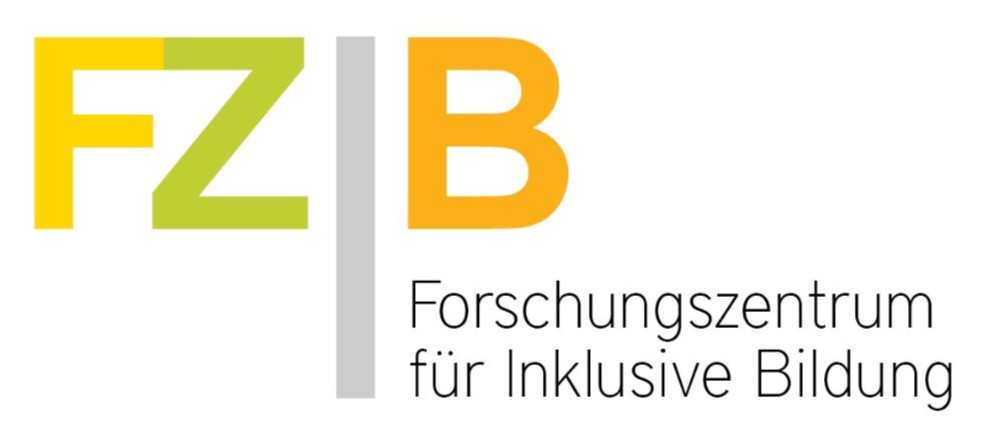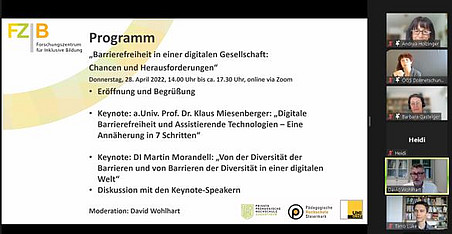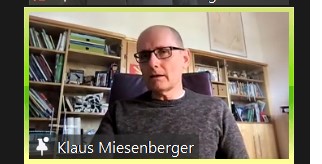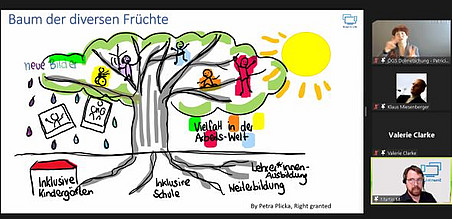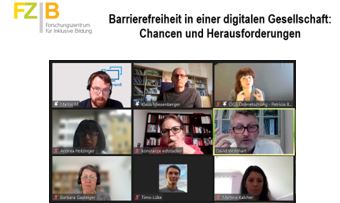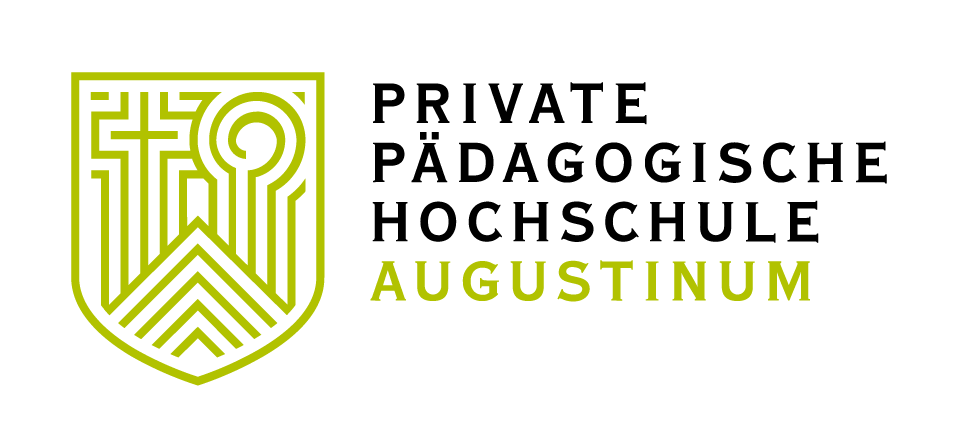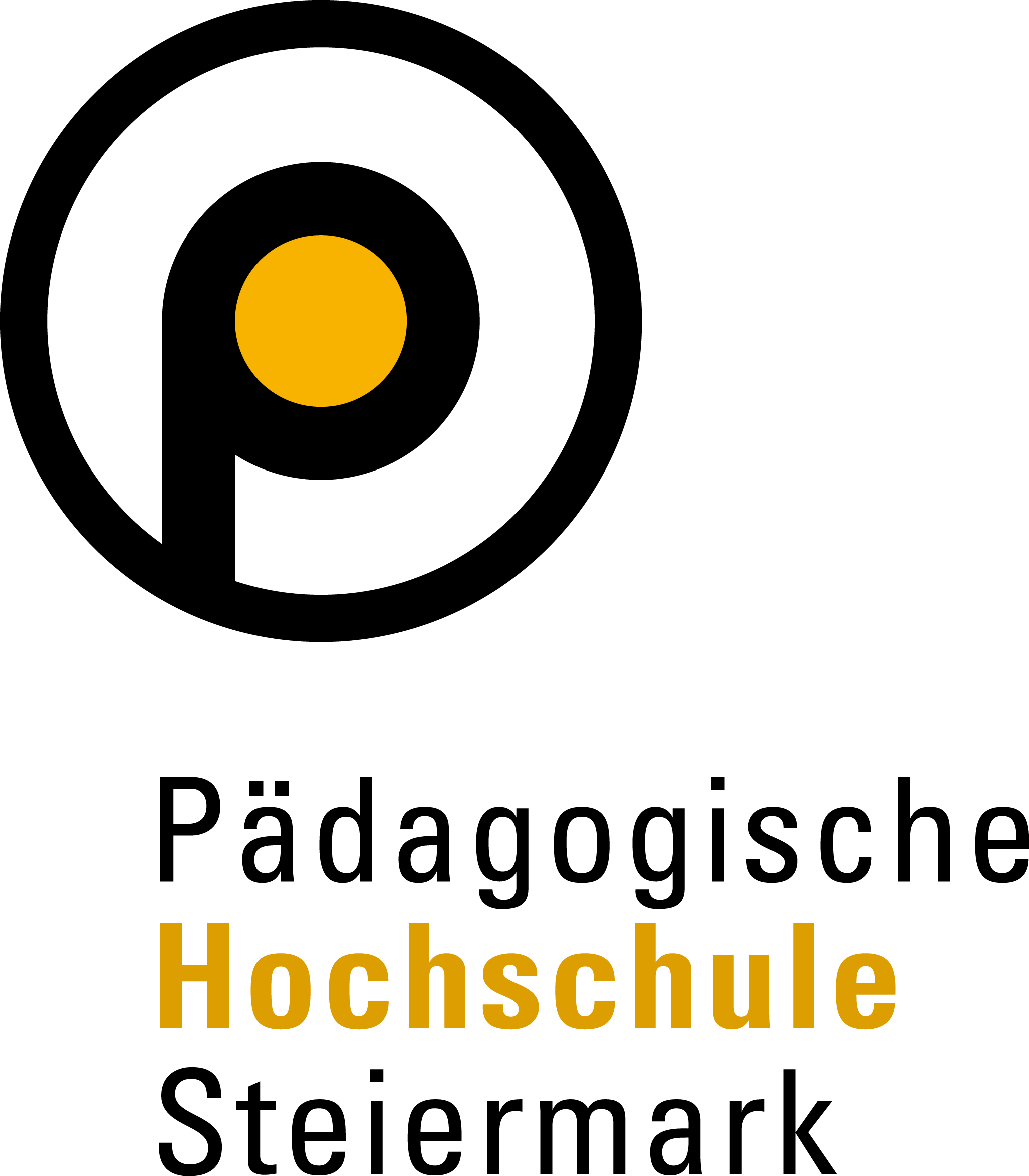15 years after the ratification of the UN CRPD in Austria, LebensGroß GmbH and RCIE hosted a conference on 26.9.2023 (details of the program can be found on the conference website) to take stock. The aim was to find out what has been achieved in Austria and what the prospects are for the future. 160 participants from social institutions, politics, teaching and research, as well as many self-advocates, showed great interest in the topic. The topic was also highly topical because in August 2023, the UN Committee of Experts conducted the state review of Austria and came to the conclusion that there are still numerous recommendations for action for Austria (UN CRPD recommendations for action in German).
The conference opened with a panel discussion moderated by Peter Much and Luca Kielhauser: Susanne Maurer-Aldrian (LebensGroß Managing Director), Barbara Gasteiger-Klicpera (Head of RCIE), Kurt Hohensinner (City Councillor for Inclusion ) and Philipp Ulrich (Councillor of the City of Graz) were asked for their assessment of the implementation of the UN CRPD in Austria. From different perspectives, they all confirmed that there is still a need for action.
In the following presentation, Christine Steger, an advocate for equal treatment issues for people with disabilities since March 2023 and previously a long-time representative for people with disabilities and chair of the monitoring committee, concisely outlined where she sees strengths and weaknesses in the implementation of the UN CRPD in Austria( you can find her presentation here ). She, as an experienced expert on the rights of people with disabilities, believes that the current legal situation is not sufficient to do justice to the UN CRPD. One reason for this are the different responsibilities of the federal state and local authorities. The fact that Austria has signed a reservation of fulfillment, i.e. that those affected cannot sue for their rights, is also responsible for this. This leads to exclusion in the education sector and people with disabilities and their representatives are still being perceived as petitioners. In Steger's view, in order to actually be able to comply with rights, it would be necessary to identify actual needs and plan resources according to these needs. A new way of thinking is needed in order to really shape laws in such a way that the Convention and the existing legal entitlements of people with disabilities are taken into account and eventually become law.
Subsequently, under the motto "Practice meets science", current research results were presented in 7 workshops on the central topics of work, accessibility, education, family, partnership & sexuality, leisure, sport & culture, politics & social participation and housing, reference was made to practice, the relationship to the UN CRPD was discussed and solutions were developed. After the workshops, these 7 perspectives were presented in a panel discussion with representatives of federal, state and city politics (Sandra Krautwaschl, Green Party, Fiona Fiedler, NEOS, Koren Maximilian, ÖVP, Philipp Ulrich KPÖ), discussed with the experts (Christine Steger, lawyer for equal treatment issues for people with disabilities, Heinz Sailer, Monitoring Committee) and specific questions were asked about implementation steps in politics.
The results of the discussion were: Strong awareness-raising is still needed so that the UN CRPD can be applied in its clear regulations. In the areas of education, family, partnership and sexuality, there is a need for awareness-raising, education and participation as well as corresponding financial resources. Accessibility is usually only understood as spatial accessibility, although there are many more levels (e.g. barrier-free communication), but even in terms of construction there are still numerous hurdles and only a minimal percentage of homes are barrier-free. In the area of politics, all levels are required to revise laws and there needs to be a legal framework for actual action. In terms of employment, the challenge remains that far too few companies actually employ people with disabilities and that many more opportunities need to be offered so that people with disabilities can pursue paid employment. In the areas of leisure, culture and sport, there are still too few resources and opportunities for people with disabilities to participate equally (e.g. expansion of personal assistance).
LebensGroß GmbH has summarised 7 perspectives:
Work
There needs to be full recognition of people with disabilities in the primary labor market, where everyone can develop their potential and is covered by social security.
Sport, culture and leisure
Barriers in the areas of sport, culture and leisure must be removed. Access to these institutions must be possible for everyone, as associations are the gateway to social life, especially in rural areas.
Accessibility
Barriers need to be made visible and sensitized in order to think about them holistically. Accessibility must not stop at ramps for wheelchair users. People with disabilities must be involved in planning processes as experts.
Politics and social participation
Politicians must communicate with all people at eye level. Political information needs to be provided in simple language and issues must not disappear just because employess of offices change. Politicians have a responsibility to create inclusive framework conditions at all levels.
Housing
People with disabilities - regardless of age and illness - can decide for themselves where, how and with whom they want to live. This requires de-institutionalization and more flexible care options.
Education
Every child has the right to inclusive education and barrier-free school buildings. Training in inclusive education must be mandatory for all educators in the education sector.
Family, partnership and sexuality
Adults should be treated as adults. Partnership and parenthood must be possible for people with disabilities (also in institutions).
Despite this enormous need for action in Austria, the atmosphere at the conference was characterized by committed support for the strong voices for the rights of people with disabilities. May these voices be followed by action!
Here you can find the presentations and materials of the workshops for review:
Workshop work - Workshop accessibility - Workshop education - Workshop family, partnership, sexuality (here the study violence against people with disabilities in simple language)- Workshop leisure, sports, culture - Workshop politics & social participation - Workshop housing
Impressions of the conference 2023
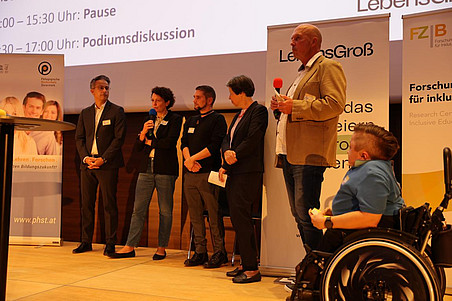
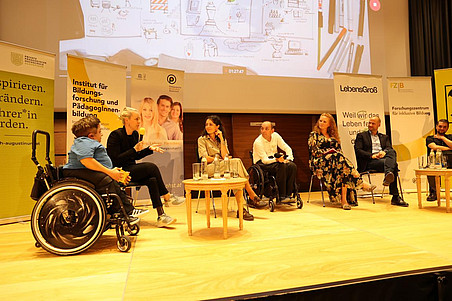
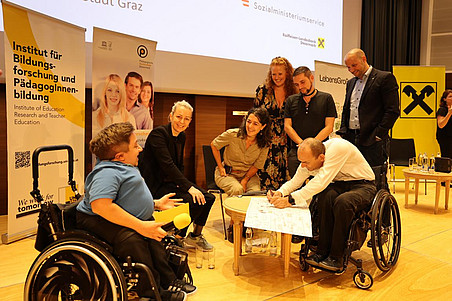
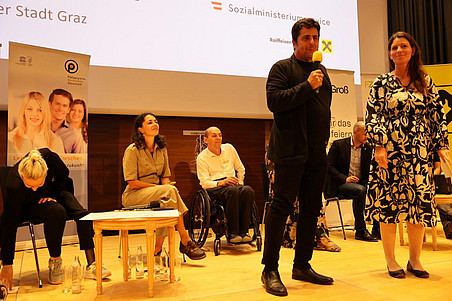
On April 28, 2022, the RCIE management team Prof. Dr. Andrea Holzinger (PH Styria) with Prof. Dr. Barbara Gasteiger-Klicpera (University of Graz) and Prof. David Wohlhart, BEd (PPH Augustinum) welcomed 60 participants to this online conference.
Here you can find an overview of the program of the RCIE Conference 2022, here the barrier-free version program Conference 2022.
The speakers at the conference agreed that digitalization is a great opportunity for the participation of people with disabilities, but digital accessibility implemented in all its consistency remains a challenge. The keynote speakers and lecturers from the RCIE research team offered a wide range of perspectives and solutions to meet these challenges:
In his keynote speech Prof. Dr. Klaus Miesenberger presented the great opportunities of digitalization, because once the skills for using digital tools are learned and made accessible, they are "simple, stable and universal" to use. Here you can find the recording of the keynote speech by Prof. Dr. Klaus Miesenberger and here his presentation as a Power Point and here the presentation as a PDF document.
Keynote speaker DI Martin Morandell emphasized that 10 to 20% of users are dependent on digital accessibility due to limitations, but 100% benefit from it. He succeeded in raising awareness of this through a wide variety of examples of digital applications. You can find the recording of Martin Morandell's keynote speech here and his presentation here.
In the following discussion further interesting inclusive digital tools were presented. The need for skills and the question, how these skills are incorporated into curricula, have been discussed, as well as exemplary models in other countries. The recording of the discussion on the keynotes can be found here.
The RCIE researchers presented solutions for inclusive education and digitalization that were developed in various research projects. The recordings and presentations are available here:
RegioDiff and RegiNaDiff: Differentiated teaching on regional and sustainability topics Ass.-Prof .Mestre Mag. Lisa Paleczek, PhD, Daniela Ender, MSc, Jessica Berger, MSc: Recording of lecture; Presentation
HAND: Empowering Teachers Valerie Fredericks, BA, Mag. Christina Oswald, MSc, Univ.-Prof. Dr. Barbara Gasteiger-Klicpera, Ass.-Prof. Mestre Mag. Lisa Paleczek: Recording of lecture; presentation
Lubo from space & Lubo-LRS Univ.-Prof. Dr. Barbara Gasteiger-Klicpera, Ass.-Prof. Dipl.-Sprachwiss. Susanne Seifert, PhD, Katharina Prinz, MSc: Recording of lecture; presentation
Individualized (legal) writing lessons with the internet platform www.iderblog.eu HS-Prof. Mag. Dr. Konstanze Edtstadler & IDeRBlog ii - Team: Recording of lecture; presentation
Basic digital education and inclusion? Katharina Maria Maitz, PhD, MA, Michaela Frieß, BEd, Mag. Heidi Kinast, MA: Recording of lecture; Presentation as PP; Presentation as PDF
Breaking knowledge barriers on high quality Open Educational Resources by conducting a scoping review research Jessica Berger, MSc, Ass.-Prof. María Asunción Arrufat Pérez de Zafra, PhD, Katharina Maitz, PhD, MA, Univ.-Prof. Dr. Barbara Gasteiger-Klicpera: Recording lecture; Presentation as PP; Presentation as PDF
Prevention barrier-free Dr. Yvonne Seidler, Prof. Mag. Dr. Martina Kalcher, MSc: Recording of lecture; Presentation
Political participation of people with disabilities through barrier-free information Prof. Martina Kalcher, MSc, Prof. David Wohlhart, BEd, co-researchers of Lebenshilfe David Formayer and Kurt Feldhofer: Recording of lecture; presentation
Data protection notice:
Participants were informed that recordings of the events will be made and posted online. Registration was accompanied by acceptance of the privacy policy .
The "Forum Inclusion" took place on 17.6.2021 in cooperation with the Research Center for Inclusive Education. The main topic of the hybrid conference was health literacy among students.
Many young people are using the internet every day to get informations on all the topics concerning them. For example, "Dr. Google" is their first port of call when it comes to health issues. But how susceptible are young people to fake news and fake facts? Do they believe everything they read in health forums and on social networks?
In the project "Health Literacy and Diversity for Secondary School Students" - "HeLi D" for short - researchers held workshops at schools to find out which health topics are relevant for secondary school students and made this data available in an adaptive program on an open access basis. The program has now been presented as part of the annual "Graz Forum Inclusion" conference on 17 June in the auditorium of the University of Graz. The conference, which was held partly in person and partly online for around 70 participants, was organized by the Unit of Inclusive Education at the The Department of Education Research and Teacher Education in cooperation with RCIE.
"HeLi D is about promoting health literacy for pupils in the sixth and seventh grades using stories on five health-related topics, such as injuries or the immune system. The program promotes pupils' critical information literacy through research tasks on the Internet and works adaptively in terms of content, i.e. it adapts the complexity of the texts and the information to the reading skills of the learners," says educational researcher Barbara Gasteiger-Klicpera, explaining how "HeLi D" works.
Research prize for inclusion from "Lebenshilfe"
A special highlight of the day was once again the presentation of the research awards from "Lebenshilfe". The prizes were awarded for outstanding scientific theses that made a significant contribution to research and the further development of inclusion. Since 2018, they have been sponsored by "Lebenshilfe Graz und Umgebung Voitsberg".
Prize winners 2021:
First place - endowed with 1500 euros - was awarded twice this year: Lea Hochgatterer received it for her work "Lifeworlds in the context of migration, flight and disability: multi-perspective recording of family structures and social support based on a good practice example". Dominique Leitner received the award for her thesis "Inclusive residential communities: an analysis using the example of 'alpha nova' ". Second place went to Caroline Breyer, who provided a special insight into the topic with her dissertation "Inclusion and school assistance: professionalization under consideration of individual factors". She received 1000 euros.
Source: News University of Graz , 18.6.2021, Konstantin Tzivanopoulos
Impressions of the Graz Forum on Inclusion 2021
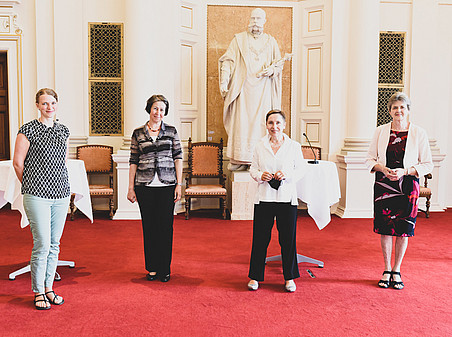
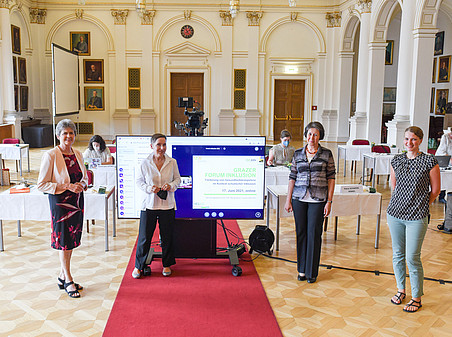
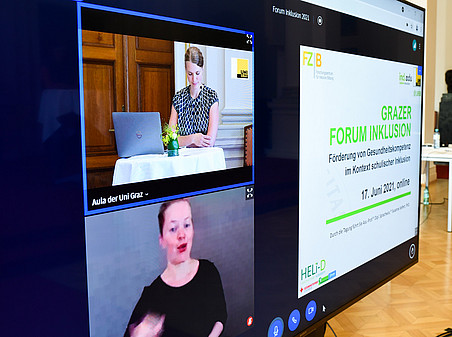
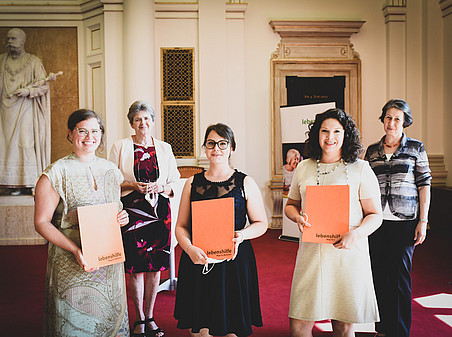
Here you will find a review of the great opening of the RCIE with events of the "Week of Inclusion" from 9.11. to 13.11.2020, we would like to thank everonye for their contributions and for the lively interest of approximately 600 participants!
After the welcome by the management team Univ.Prof. Dr. Barbara Gasteiger-Klicpera (Uni Graz) with Prof. Dr. Andrea Holzinger (PH Steiermark) and Prof. David Wohlhart, BEd (KPH Graz), the RCIE was ceremoniously opened with congratulations and best wishes for success by Rector Dr. Andrea Seel of the KPH Graz, Rector Dr. Elgrid Messner of the PH Steiermark and Rector Ao. Prof. Dr. Martin Polaschek of the University of Graz.
Here you can find an overview of the opening program.
The entire recording of the opening ceremony on 13.11.2020 can be found here.
We also provide you with individual parts of the program from 13.11.2020:
The welcome address by the management team, the statements by the rectors and the words of welcome from councillor Dr. Peter Piffl-Perčević, from the Member of the National Council Dipl.-Päd. MMag. Dr. Agnes Totter, BEd, from State Councillor Mag. Doris Kampus, from EU Commissioner Helena Dalli and Federal Minister Dr. Heinz Faßmann are in this recording, the video of the welcome speech with subtitles can be found here.
Here you can find the video of the inspiring words of welcome by Helena Dalli, EU Commissioner for Equality.
The Welcoming address by Federal Minister Dr. Heinz Faßmann, reaffirming the importance of inclusion in all areas, can be found here.
The keynote speech by Prof. Mel Ainscow, CBE, FRSA on "Equity: the way of achieving excellence in education" can be found here.
Dr. Ingo Bosse'skeynote on "Mediatized lifeworlds in inclusive contexts - challenges for school pedagogy and (digital) educational work" can be found as a recording here, his presentation with subtitles here. You can access his presentation here .
The discussion on the topic "Centers for inclusion research - opportunities and risks" with Prof. Dr. Vera Moser (founding director of the Center for Inclusion Research at Humboldt-University of Berlin) with Univ.Prof. Dr. BarbaravGasteiger-Klicpera (University of Graz), Prof. Dr. Andrea Holzinger (PH Steiermark) and Prof. David Wohlhart, BEd (KPH Graz) is here for review, in this version with subtitles.
The conclusion with thanks to all participants can be found here, there is also a video with subtitles.
Review of the program part online presentations "Current research on inclusive education"
On Monday, 9.11. and Tuesday, 10.11.2020, online presentations of current research on inclusive education took place from 17.00 to 18.30. Participants could choose between exciting presentations on the latest research results from 3 online rooms. For an overview, you can find the program with a description of the presentations here.
- The presentations of the program on 9.11. and 10.11.2020 are available here:
-
Presentation "Distance learning for students with disabilities: Perspectives from teachers" - Prof. Dr. Andrea Holzinger; Prof. Edvina Bešić, PhD; Prof. Ursula Komposch; Prof. David Wohlhart, BEd
-
Presentation "A common inclusive language: ICF@School" - Prof. Silvia Kopp-Sixt, MA & Katerina Todorova, MSc
-
Presentation "School context and composition effects with regard to social-emotional development in lower secondary school" - HS-Prof. Dr. Mathias Krammer, Bakk. MA PhD.
-
Presentation "ReHaRe: Reaching the 'hard to reach': Inclusive responses to diversity through child-teacher dialogue" - Univ.-Prof. Dr. Barbara Gasteiger-Klicpera, Prof. Edvina Bešić, MSc PhD and Ass.-Prof. Mestre Mag. Lisa Paleczek, PhD
-
Presentation "RegioDiff: Getting to know the regions of Styria: Differentiated subject teaching materials for inclusive lessons in the fourth grade"- Ass.-Prof. Mestre Mag. Lisa Paleczek, PhD, Daniela Ender, MSc and Prof. David Wohlhart, BEd
-
Presentation "IMAS II: Improving Assistance in Inclusive Educational Settings II" - Caroline Breyer, Bakk. Phil MSc PhD, Univ.-Prof. Dr. Barbara Gasteiger-Klicpera
-
Presentation "HeLi-D: Health-Literacy and Diversity for Pupils at Secondary Level I" - Katharina Maitz, BA BA MA, Dominik Pendl, MSc and Univ.-Prof. Dr. Barbara Gasteiger-Klicpera
-
Presentation "Use of digital media by people with disabilities in disability care. Participatory research project" - Prof. Mag. Dr. Martina Kalcher, MSc
-
Presentation "Inclusion is more than special education? The study of the specialization in inclusive education at EVSO" - Prof. Barbara Gasteiger-Klicpera, Prof. Andrea Holzinger, Prof. David Wohlhart, BEd
-
Presentation "High performance or also fair? How are primary school systems developing in Europe?"- Univ.-Prof. Dr.phil. Heike Wendt, University Professor for Empirical Educational Research, University of Graz
-
Presentation "The tendency towards socially desirable responses when measuring attitudes towards inclusion" - Dr. Timo Lüke, M. Ed., is Academic Counsellor at the Faculty of Rehabilitation Sciences at TU Dortmund University, from WS20/21 Professorship for Inclusive Education at the Department of Education Research and Teacher Educationthe at the University of Graz
-
-
Here you will find the recordings of the lectures in the individual online rooms on the different dates:
-
Online room 1 on 9.11.2020 Current research on inclusive education (Lectures "Distance learning for students with disabilities: Teachers' perspectives'; 'A common inclusive language: ICF@School'; 'School context and composition effects on social-emotional development in lower secondary school')
-
Online room 2 on 9.11.2020 Current research on inclusive education (Presentations "ReHaRe: Reaching the 'hard to reach': Inclusive responses to diversity through child-teacher dialogue"; "RegioDiff: Getting to know regions of Styria: Differentiated subject teaching materials for inclusive teaching in fourth grade"; "IMAS II: Improving Assistance in Inclusive Educational Settings II")
-
Online room 3 on 9.11.2020 Current research on inclusive education (Presentations "HeLi-D: Health literacy and diversity for pupils at lower secondary level"; "Use of digital media by people with disabilities in disability support. Participatory research project"; "Inclusion is more than special education? - Studying the specialization in inclusive education at the EVSO"
-
Online lecture on 9.11.2020 " High-performing or also fair? How are primary school systems developing in Europe?"
-
Online room 1 on 10.11.2020 Current research on inclusive education (Lectures "Distance learning for students with disabilities: Teachers' perspectives'; 'A common inclusive language: ICF@School'; 'School context and composition effects on social-emotional development in lower secondary school')
-
Online room 2 on 10.11.2020 Current research on inclusive education (Presentations "ReHaRe: Reaching the 'hard to reach': Inclusive responses to diversity through child-teacher dialogue"; "RegioDiff: Getting to know regions of Styria: Differentiated subject teaching materials for inclusive education in fourth grade"; "IMAS II: Improving Assistance in Inclusive Educational Settings II")
-
Online room 3 on 10.11.2020 Current research on inclusive education (Presentations "HeLi-D: Health-Literacy and Diversity for Secondary School Students"; "Use of digital media by persons with disabilities in disability care. Participatory research project"; "Inclusion is more than special education? - Studying the specialization in inclusive education at the EVSO"
-
Online lecture on 10.11.2020 "The tendency towards socially desirable responses when measuring attitudes towards inclusion"
-
On Wednesday, 11.11.2020, the online workshop on "Covid-19 - The end of inclusion? Rescue through digitalization?" took place. Here you can find the program overview.
Impressions from the FZIB 2020 opening conference

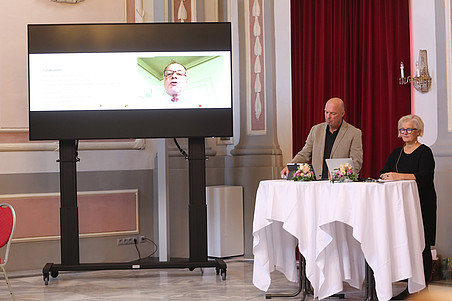
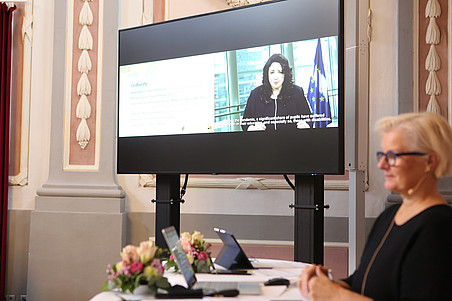
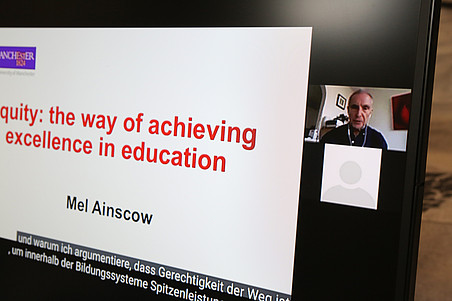
Here you can find a short report on the Graz Forum Inclusion 2024 "Don't forget about us! Dementia and intellectual impairment".
"Promoting the reading skills of bilingual children" was the topic of the Graz Forum Inclusion 2023.
The Graz Forum Inclusion 2022 was entitled "The UN Convention on the Rights of Persons with Disabilities and its political impact on the education system".
"Promoting health literacy in the context of school inclusion" was the main topic of the Graz Forum Inclusion 2021.
The Graz Forum Inclusion 2020 dealt with the topic of "Reaching all children in the classroom".
